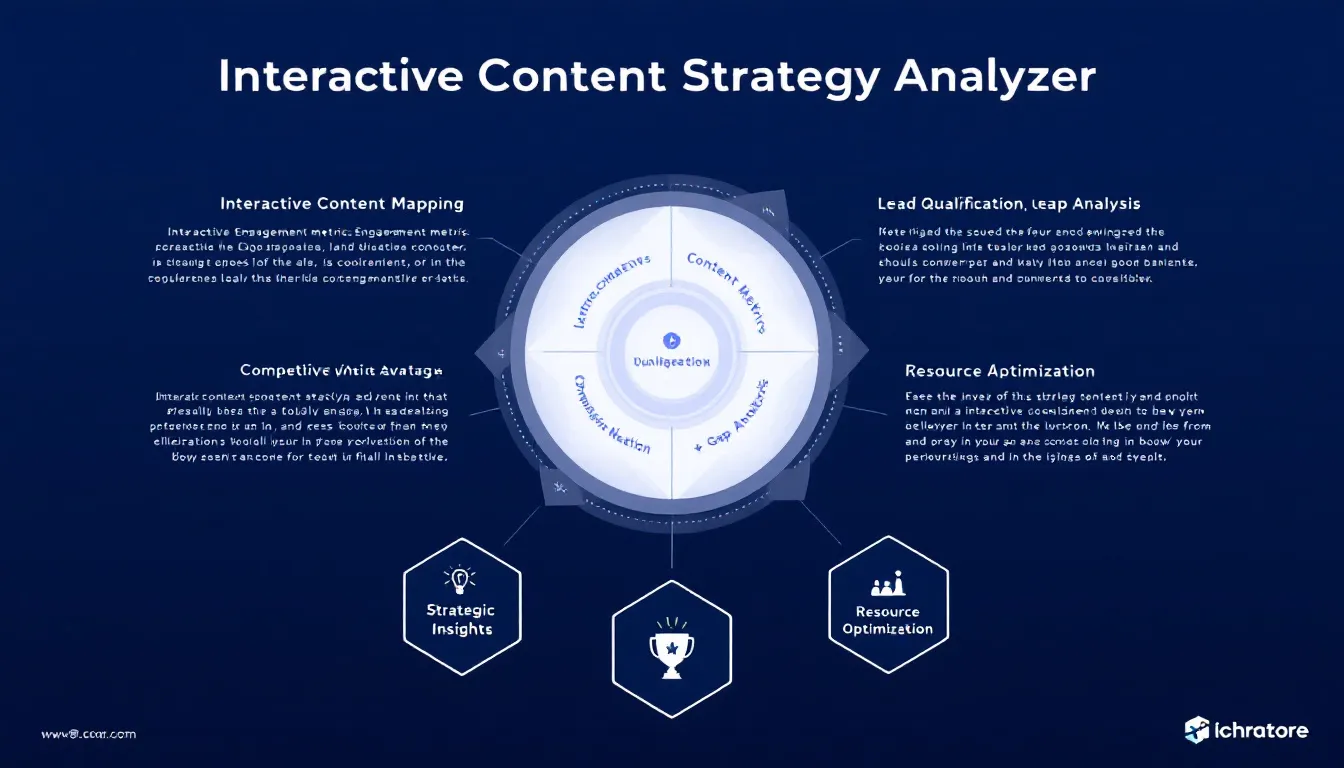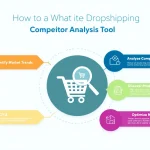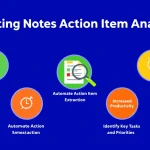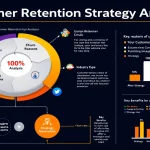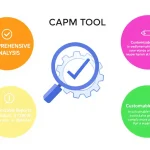Interactive Content Strategy Analysis
Is this tool helpful?
How to Use the Competitive Interactive Content Analysis Tool Effectively
To maximize the benefits of our Competitive Interactive Content Analysis Tool, follow these step-by-step instructions for each field:
1. Company Name Input
- Enter your company’s legal name or trading name
- Example 1: “TechFlow Solutions”
- Example 2: “HealthCare Dynamics International”
2. Competitor Analysis Section
- List your main competitors, one per line
- Include direct and indirect competitors
- Example 1: “Salesforce, HubSpot, Marketo”
- Example 2: “Mayo Clinic, Cleveland Clinic, Johns Hopkins”
3. Product/Service Description
- Provide detailed information about your core offering
- Include key features and unique selling propositions
- Example 1: “AI-powered customer relationship management platform with predictive analytics”
- Example 2: “Specialized orthopedic rehabilitation services with remote monitoring capabilities”
4. Target Audience Definition
- Describe your ideal customer profile
- Include demographic and psychographic characteristics
- Example 1: “B2B SaaS companies with 50-500 employees in North America”
- Example 2: “Urban professionals aged 25-45 seeking preventive healthcare solutions”
Understanding Interactive Content Strategy Analysis
The Competitive Interactive Content Analysis Tool is a sophisticated platform designed to evaluate and benchmark your competitors’ interactive content strategies while identifying opportunities for enhanced engagement with your target audience.
Core Components of Analysis
- Interactive content mapping
- Engagement metrics evaluation
- Lead qualification assessment
- Content gap analysis
- Opportunity identification
Benefits of Using the Interactive Content Analysis Tool
1. Strategic Insights
Gain comprehensive understanding of:
- Competitor content strategies
- Market engagement patterns
- Content effectiveness metrics
- Lead qualification processes
2. Competitive Advantage
- Identify market gaps
- Discover unique opportunities
- Optimize content strategy
- Enhance user engagement
3. Resource Optimization
- Targeted content development
- Efficient resource allocation
- improved ROI on content investments
- Streamlined content planning
Practical Applications and Use Cases
Case Study 1: SaaS Company Implementation
A software company specializing in project management tools used the analyzer to evaluate competitors’ interactive content:
- Identified gap in ROI calculators
- Developed interactive project timeline tool
- Increased lead generation by 47%
- Improved qualification rate by 28%
Case Study 2: Healthcare Provider Analysis
A regional healthcare network analyzed competitor engagement strategies:
- Discovered opportunity in symptom checkers
- Implemented virtual health assessment tools
- Increased patient engagement by 65%
- Reduced unnecessary consultations by 32%
Strategic Implementation Guide
1. Content Audit Phase
- Analyze existing interactive content
- Evaluate engagement metrics
- Assess content effectiveness
- Map user journey touchpoints
2. Competitive Analysis Phase
- Document competitor tools
- Evaluate engagement methods
- Analyze qualification processes
- Identify unique approaches
3. Implementation Strategy
- Define content objectives
- Develop interactive tools
- Create engagement metrics
- Establish success criteria
Advanced Features and Capabilities
1. Interactive Content Types Analysis
- Quizzes and assessments
- ROI calculators
- Interactive infographics
- Configurators and tools
2. Engagement Metrics Evaluation
- User interaction rates
- Completion percentages
- Lead quality scores
- Conversion metrics
Frequently Asked Questions
Q: How often should I conduct competitive content analysis?
A: Conduct analysis quarterly to stay current with market trends and competitor strategies. More frequent analysis may be necessary in rapidly evolving industries.
Q: What types of interactive content should I focus on first?
A: Start with content types that directly address your audience’s primary pain points and decision-making processes, such as ROI calculators or assessment tools.
Q: How can I measure the success of interactive content?
A: Track engagement metrics, lead quality scores, conversion rates, and time spent on interactive elements to measure effectiveness.
Q: Should I analyze both direct and indirect competitors?
A: Yes, analyze both types to gain comprehensive market insights and identify unique opportunities across your industry.
Q: How can I differentiate my interactive content?
A: Focus on creating unique value propositions, addressing specific industry challenges, and incorporating proprietary data or methodologies.
Q: What resources are needed for implementing interactive content?
A: Consider technical development capabilities, content creation resources, and analytics tools for tracking and optimization.
Best Practices for Implementation
1. Content Strategy Alignment
- Align with business objectives
- Focus on user value
- Maintain brand consistency
- Ensure mobile responsiveness
2. User Experience Optimization
- Streamline navigation
- Optimize loading times
- Provide clear instructions
- Implement feedback mechanisms
3. Continuous Improvement
- Monitor performance metrics
- Gather user feedback
- Update content regularly
- Optimize based on data
Important Disclaimer
The calculations, results, and content provided by our tools are not guaranteed to be accurate, complete, or reliable. Users are responsible for verifying and interpreting the results. Our content and tools may contain errors, biases, or inconsistencies. We reserve the right to save inputs and outputs from our tools for the purposes of error debugging, bias identification, and performance improvement. External companies providing AI models used in our tools may also save and process data in accordance with their own policies. By using our tools, you consent to this data collection and processing. We reserve the right to limit the usage of our tools based on current usability factors. By using our tools, you acknowledge that you have read, understood, and agreed to this disclaimer. You accept the inherent risks and limitations associated with the use of our tools and services.
